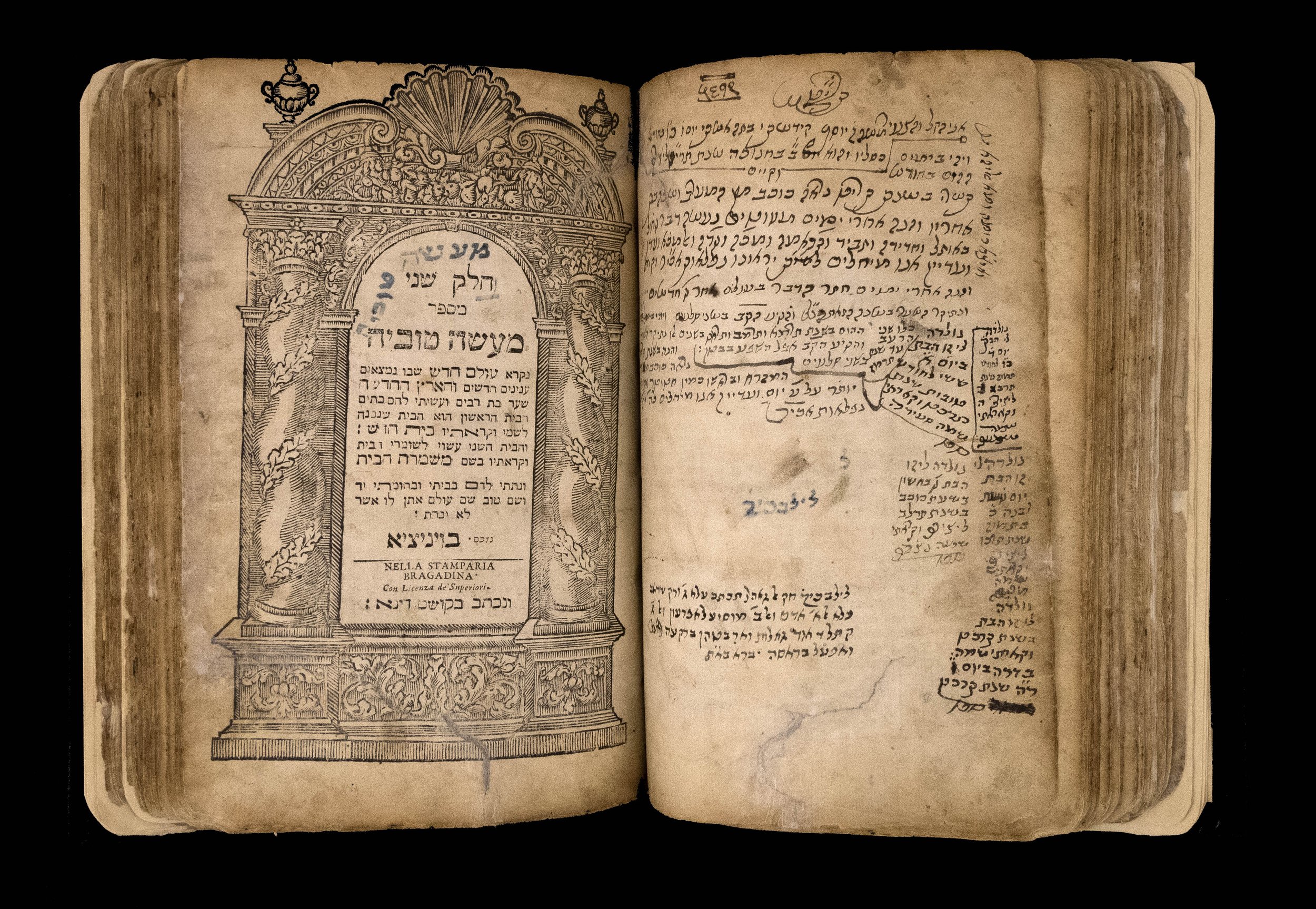REMEMBERING DR. MICHAEL D. PAUL, z”l
If you’ve attended any of our rare books workshops, or perused this website, you may recognize the name Dr. Michael D. Paul. His generous support made the first ten years of the Rare Books Initiative possible, and his passing on September 10th will be felt throughout our community, near and far. In honour of his passing, Eddie Paul, Associate Director of Special Collections, would like to use this platform to share a few words about Dr. Paul.
Dr. Michael Paul’s generosity had become the reason the JPL’s rare books initiative thrived in its first years. We had only ever communicated by email, but when he decided to travel in from St. John’s to visit his mother and pick up his habitual order of smoked meat from Schwartz’s, I met him for the first time and showed him some of the more remarkable volumes from the rare books collection that his gifts were supporting.
I pulled out the Ma’aseh Toviyah, mostly because it’s one of the few in the collections with images. Without showing him the title page, I opened it to the famous image of the human body overlaid with the rooms of a house – a mnemonic aid for medical students (the book is a scientific text), and he said to me, “Ah yes, the Ma’aseh Toviyah, I particularly like looking at the kidneys.”
It took me a second or two, but I remembered that Dr. Paul was a nephrologist. And in that moment learned that while he was generally formal in his correspondence, his humour should have come as no surprise. You can’t spend your life casting a pall over everything when you’re a Paul.
To this day, I’m not certain how he found out about our collection back in 2014 but he became a stalwart supporter, emailing me regularly to get updates on the status of our workshop programme, asking for the lists of new books I would buy for the library in my prior role as collections librarian, asking me periodically to comment on some of my choices; his own expertise in the field of antiquarian Judaica far surpassed mine. Just recently, I met Daniel Kestenbaum – a well-known dealer in the field who was a regular supplier of Dr. Paul’s own collection – and confirmed that having visited Dr. Paul in St. John’s a few times, that the expertise derived quite organically from an authentic love of the printed book. I recall at least once, Dr. Paul asking me to supply him with a letter of introduction so that he might view a new acquisition of Hebrew manuscripts at the British Library. Taken aback, I’d always thought this was the sort of request one typically makes of a distinguished senior official from an important library, but Dr. Paul obviously thought the JPL had sufficient gravitas to get him access. He visited the collection although I don’t know if my letter contributed or not.
Dr. Paul invited me to visit him in St. John’s several times over the years and I regret now not having taken him up on his offer. His passing on September 10th came as a shock to all of us at the JPL and while he stopped visiting Montreal many years ago, we tended to feel that he was always here with us. Our own rare books collection would never have attained the kind of profile it now has without him, and to this day whenever I show the Ma’aseh Toviyah to young students, I make a point of drawing their attention to the kidneys. Kidneys filter and clear toxins from the blood; books help to clarify and filter detritus the world throws at the imagination. Dr. Paul’s enduring memory will help the library propagate many more of these teachable moments.


